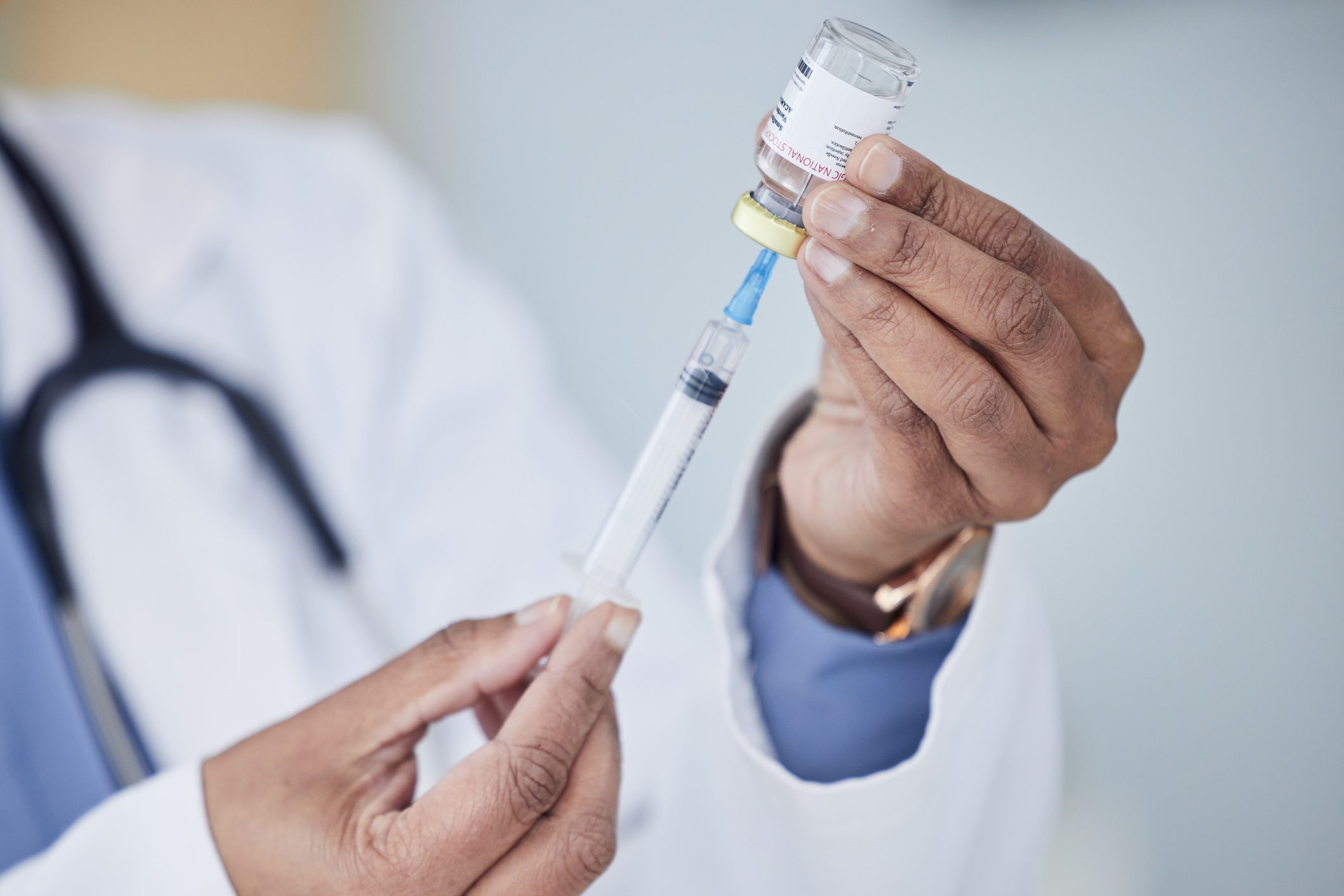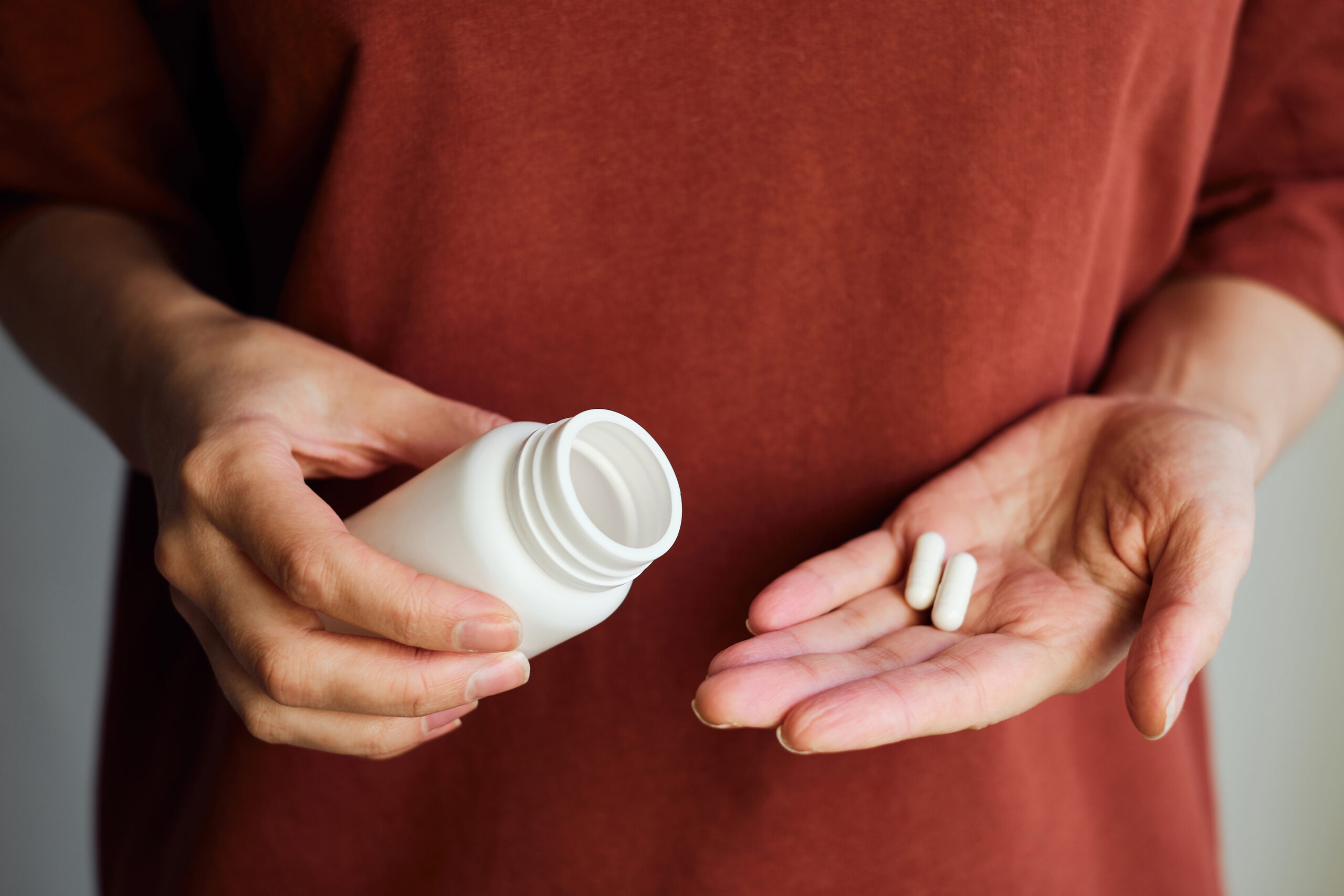Amid the symphony of hormonal changes that characterize perimenopause, testosterone often takes a backstage role as estrogen and progesterone grab the spotlight.
We often think of testosterone as a male hormone, but testosterone is not exclusive to men, and insufficiencies can create or worsen menopausal symptoms. Women produce testosterone (although in smaller amounts) within their ovaries, adrenal glands, and peripheral tissues.1
During the menopause transition, estrogen and progesterone production declines, which also leads into a decline in DHEA, a hormone that helps make testosterone.2 These hormonal shifts contribute to many symptoms you experience during menopause.
Symptoms of Testosterone Deficiency in Menopause
During and after menopause, testosterone levels typically decline in women. This decline is usually gradual and can vary among women. While it generally follows a downward trend, it’s not necessarily linear for everyone. Age, genetics, lifestyle, and overall health can influence the rate and extent of testosterone decline in women during this phase of life.
Testosterone imbalances can present a range of symptoms that can profoundly impact your physical health, emotional well-being, and overall quality of life during menopause. Among the most common symptoms include:
- Decreased libido: Testosterone plays a crucial role in nurturing sexual desire and arousal. As levels decline during menopause, many women experience a notable decrease in desire.3
- Lack of energy: Testosterone contributes significantly to energy levels and your overall sense of vigor. With declining levels during menopause, you may grapple with persistent fatigue.4
- Reduced muscle mass and strength: Testosterone is essential for maintaining strong muscles. Declining levels can contribute to muscle loss and diminished strength, making you more prone to frailty and increasing the risk of falls and fractures.5
- Changes in body composition: Besides muscle mass, testosterone helps regulate fat distribution. As levels decline during menopause, you may notice changes in your body shape, with increased body fat (particularly around your abdomen as visceral fat) and a decreased muscle tone.6
- Mood swings and irritability: Testosterone affects your overall mood and well-being. Deficiencies can make you feel emotionally volatile and less mentally resilient in the face of stress.7
- Depression and anxiety: Low testosterone levels can also increase your risk of mood disorders. These hormonal imbalances can increase feelings of sadness, hopelessness, and anxiety, significantly impacting your mental health and well-being.8
What Is Testosterone Replacement Therapy (TRT)?
Testosterone replacement therapy (TRT) uses synthetic testosterone to supplement low levels of this hormone. If you’re experiencing issues like decreased libido or fatigue during menopause, talk with your healthcare provider or functional-medicine doctor about TRT.
How you receive TRT depends on various factors, such as your preferences, lifestyle considerations, and your healthcare provider’s recommendations. Options include:
- Transdermal patches or gels: Allow testosterone to be absorbed through your skin, steadily releasing the hormone into your bloodstream over time.
- Intramuscular injections: Your healthcare practitioner (or you, if you’re not scared of needles) injects testosterone directly into a muscle, typically your butt or thigh. This method enables rapid absorption of the hormone into the bloodstream.
- Subcutaneous pellets: Small implants (about the size of a rice grain) are inserted under your skin, usually in the buttocks or abdomen, during a minor surgical procedure. These pellets slowly release testosterone into the bloodstream over several months, offering continuous hormone replacement. This option is typically not recommended (including by many major medical organizations) as pellets carry risks that may outweight the benefits, such as infection, difficulty controlling dosage, vaginal changes, hair loss, and more. Plus, it’s a commitment; once implanted, pellets cannot be removed.
- Tablets or capsules: You take these orally. However, concerns regarding liver toxicity and irregular absorption make this option less popular than other methods.9
Benefits of Testosterone Hormone Replacement Therapy
TRT offers you a potent tool to combat the symptoms of hormone deficiency and reclaim vitality during menopause. Its benefits include:
- Better sexual function and libido: One of the most notable benefits of TRT for menopausal women is restoring sexual function and libido. TRT can help reignite your libido, arousal, and overall sexual satisfaction.10
- Increased energy and vitality: TRT can provide a much-needed energy boost, relieving the persistent fatigue and lack of vigor that menopausal symptoms can create.11
- Better mood and well-being: TRT can help foster a greater sense of emotional balance, mental resilience, and overall well-being.12
- Healthier bones and muscles: TRT can help manage the loss of bone and muscle mass that often accompany menopause. This may reduce the risk of problems like osteoporosis and sarcopenia, lowering your risk of falls and fractures.13
- Other benefits: TRT may offer other benefits, including better cognitive function, breast protection against invasive breast cancer, and overall quality of life.14 Talk with your functional-medicine doctor about how TRT can help benefit specific menopausal concerns.
Potential Risks of TRT
The risks of TRT are often minimal or manageable, especially when your healthcare practitioner prescribes TRT at tailored doses and monitors your condition regularly. For many women, the benefits of TRT far outweigh the risks, and your practitioner can adjust the dosage if you experience these side effects:
Hormone Imbalances
Fluctuations in testosterone levels relative to other hormones can lead to mood swings and irritability, emphasizing the importance of hormonal balance. However, TRT may disrupt this balance by influencing estrogen and progesterone levels, potentially worsening menopausal symptoms or causing unintended side effects.15 The likelihood of this happening depends on the delivery method. For example, injections can cause peaks and dips in hormone levels.
Each person’s body responds differently to TRT. Women with certain health conditions or hormonal disorders might be more susceptible to these fluctuations and imbalances. Likewise, age, overall health, and your body’s ability to metabolize and utilize hormones determine these side effects. Regularly monitoring hormone levels and symptoms is essential so your healthcare provider can adjust treatment to minimize side effects.
Changes to Appearance
TRT may create mild to severe side effects for some women. These can include acne, oily skin, and hair thinning or loss, which may worsen your concerns about changes in physical appearance. Furthermore, TRT can lead to typically male characteristics, including voice deepening and facial hair growth.16 These effects are uncommon among most women, and your healthcare provider can make dosage adjustments if these side effects arise.
Heart-Health Risks
TRT may increase blood pressure, elevate cholesterol levels, and heighten your risk of heart attacks and strokes.17
Breast Health Concerns
Testosterone can potentially stimulate the growth of breast tissue. This may be an issue for women with a history of or predisposition to breast cancer or other breast health issues such as fibrocystic breast changes. Women with a history of breast cancer or other breast health concerns should discuss potential risks with their healthcare provider.18
How to Boost Testosterone Levels Naturally
The following strategies can help support testosterone levels, promoting well-being and vitality. If you do opt for TRT, incorporating these strategies can complement and enhance your efforts to support testosterone production naturally.
Eat 30-50g of Protein at Every Meal
Protein is the building block of muscle tissue and plays a vital role in hormone synthesis, including testosterone.19 Incorporating protein-rich foods such as wild-caught fish, grass-fed beef, and pastured eggs (if you can tolerate them) will support muscle growth and testosterone production.

Don’t Fear Fat
Healthy fats are essential for hormone production.20 Your body makes testosterone from cholesterol, a type of fat. Without an adequate intake of healthy fats, your body may struggle to make enough testosterone.
Avocados, nuts, seeds, and extra-virgin olive oil can support testosterone production. The anti-inflammatory omega-3 fatty acids in wild-caught fish and fish oil can also support hormonal balance, manage menopausal problems, and support mood and bone health.21
Get These Key Nutrients
Zinc, vitamin D, and magnesium are crucial in testosterone production and regulation.22, 23 Zinc-rich foods include oysters, shellfish, beef, poultry, nuts, seeds, and legumes.
Wild-caught fish, egg yolks (if you can tolerate eggs), and wild mushrooms are among the few food sources of vitamin D. While your body can make vitamin D from sunlight, you will likely need to supplement to get therapeutic amounts.
Magnesium-rich foods include leafy green vegetables, nuts, seeds, and legumes.
Lift Heavy Things
Regular resistance training can help build muscle mass, increase strength, and enhance testosterone levels.24 However, overdoing resistance training, particularly without adequate rest and recovery, can have the opposite effect and reduce testosterone levels.
Chronic intense training elevates cortisol, which can suppress testosterone production in high amounts. Pushing your body beyond its recovery capabilities can also lead to fatigue and decreased performance, impacting testosterone levels.
Balance is key. Avoid working the same muscle groups on consecutive days. Pay attention to signs of fatigue and soreness, and rest if you feel overly tired or in pain. Get adequate sleep to allow muscles to recover and grow as well.
My FREE Resistance Training Cheat Sheet provides everything you need for your fitness journey, including home gym essentials, an 8-week workout plan, and a progress tracker to track your sets, reps, and weights with each workout.
Get Great Sleep
Quality sleep is essential for hormone regulation, including testosterone.25 Studies link poor sleep quality with lower testosterone concentrations, and those repercussions can become more pronounced as you get older.26 Aim for seven to nine hours of uninterrupted sleep every night to support optimal hormone production and regulation.
Sleep Candy™ combines 3 mg of melatonin with other sleep-support nutrients for your best night’s sleep, every single night.*
Manage Stress
Chronic stress can negatively impact hormone balance, including testosterone levels.27 Stress is one of the biggest causes of hormonal imbalances in women. However, in one survey, 72% said they didn’t recognize the symptoms were connected to hormone imbalances until after they experienced them.28
Learn to manage stress before it gets the best of you. Incorporate stress management techniques such as meditation, deep breathing exercises, yoga, tai chi, or spending time in nature.
Discussing Options With Your Healthcare Practitioner
Factors influencing the decision for TRT during menopause include symptom severity, individual hormone levels, overall health, and personal preferences.29
Comprehensive hormone testing can help your healthcare practitioner evaluate the severity of symptoms (like lower libido and fatigue) and how they relate to your estrogen and progesterone levels. They may also consider pre-existing health conditions like cardiovascular disease, personal treatment goals, and preferences for symptom relief and sexual health improvement.
If you’re curious about whether TRT is right for you, talk with your functional-medicine doctor about its benefits, risks, and alternatives. They can also evaluate combining TRT with estrogen or other hormonal therapy. TRT can complement estrogen and progesterone replacement therapy during menopause, addressing issues including sexual function, energy, mood, and bone/muscle health.
Your healthcare practitioner can thoroughly evaluate your symptoms, hormone levels, and health status. They will closely monitor your progress, allowing for adjustments with dosage as needed. This personalized approach optimizes TRT’s therapeutic benefits while minimizing potential adverse effects.
References:
- Bain J. The many faces of testosterone. Clin Interv Aging. 2007;2(4):567-76. doi: 10.2147/cia.s1417. PMID: 18225457; PMCID: PMC2686330.
- Tang J, Chen LR, Chen KH. The Utilization of Dehydroepiandrosterone as a Sexual Hormone Precursor in Premenopausal and Postmenopausal Women: An Overview. Pharmaceuticals (Basel). 2021 Dec 29;15(1):46. doi: 10.3390/ph15010046. PMID: 35056103; PMCID: PMC8781653.
- Scott A, Newson L. Should we be prescribing testosterone to perimenopausal and menopausal women? A guide to prescribing testosterone for women in primary care. Br J Gen Pract. 2020 Mar 26;70(693):203-204. doi: 10.3399/bjgp20X709265. PMID: 32217602; PMCID: PMC7098532.
- Cleveland Clinic: Low Testosterone In Women
- Buckinx F, Aubertin-Leheudre M. Sarcopenia in Menopausal Women: Current Perspectives. Int J Womens Health. 2022 Jun 23;14:805-819. doi: 10.2147/IJWH.S340537. PMID: 35769543; PMCID: PMC9235827.
- Bann D, Wu FC, Keevil B, Lashen H, Adams J, Hardy R, Muniz G, Kuh D, Ben-Shlomo Y, Ong KK. Changes in testosterone related to body composition in late midlife: Findings from the 1946 British birth cohort study. Obesity (Silver Spring). 2015 Jul;23(7):1486-92. doi: 10.1002/oby.21092. Epub 2015 Jun 5. PMID: 26053924; PMCID: PMC4744737.
- Sander B, Muftah A, Sykes Tottenham L, Grummisch JA, Gordon JL. Testosterone and depressive symptoms during the late menopause transition. Biol Sex Differ. 2021 Jul 30;12(1):44. doi: 10.1186/s13293-021-00388-x. PMID: 34330326; PMCID: PMC8325283.
- Cleveland Clinic: Low Testosterone In Women
- Medical News Today: Testosterone Replacement Therapy (TRT): What to Know
- Basson R. Testosterone therapy for reduced libido in women. Ther Adv Endocrinol Metab. 2010 Aug;1(4):155-64. doi: 10.1177/2042018810379588. PMID: 23148160; PMCID: PMC3474615.
- The Menopause Charity: Testosterone and the menopause
- Goldstat R, Briganti E, Tran J, Wolfe R, Davis SR. Transdermal testosterone therapy improves well-being, mood, and sexual function in premenopausal women. Menopause. 2003 Sep-Oct;10(5):390-8. doi: 10.1097/01.GME.0000060256.03945.20. PMID: 14501599.
- Sipilä S, Törmäkangas T, Sillanpää E, Aukee P, Kujala UM, Kovanen V, Laakkonen EK. Muscle and bone mass in middle-aged women: role of menopausal status and physical activity. J Cachexia Sarcopenia Muscle. 2020 Jun;11(3):698-709. doi: 10.1002/jcsm.12547. Epub 2020 Feb 3. PMID: 32017473; PMCID: PMC7296268.
- Donovitz GS. A Personal Prospective on Testosterone Therapy in Women-What We Know in 2022. J Pers Med. 2022 Jul 22;12(8):1194. doi: 10.3390/jpm12081194. PMID: 35893288; PMCID: PMC9331845.
- Blum, Esther. See ya later, Ovulator!: Mastering Menopause with Nutrition, Hormones, and Self-Advocacy (p. 72). Hybrid Global Publishing. Kindle Edition.
- Islam RM, Bell RJ, Green S, Davis SR. Effects of testosterone therapy for women: a systematic review and meta-analysis protocol. Syst Rev. 2019 Jan 11;8(1):19. doi: 10.1186/s13643-019-0941-8. PMID: 30635029; PMCID: PMC6329173.
- Britton RC, Beamish NF. The Impact of Testosterone Therapy on Cardiovascular Risk Among Postmenopausal Women. J Endocr Soc. 2023 Oct 25;8(1):bvad132. doi: 10.1210/jendso/bvad132. PMID: 38178905; PMCID: PMC10765381.
- Utah Genetics: The Friendly Side of Fat – Genetic Science Learning Center
- Saldeen P, Saldeen T. Women and omega-3 Fatty acids. Obstet Gynecol Surv. 2004 Oct;59(10):722-30; quiz 745-6. doi: 10.1097/01.ogx.0000140038.70473.96. PMID: 15385858.
- Cinar V, Polat Y, Baltaci AK, Mogulkoc R. Effects of magnesium supplementation on testosterone levels of athletes and sedentary subjects at rest and after exhaustion. Biol Trace Elem Res. 2011 Apr;140(1):18-23. doi: 10.1007/s12011-010-8676-3. Epub 2010 Mar 30. PMID: 20352370.
- Healthline: Does Working Out Increase Testosterone Levels?
- Sleep Centers of Middle Tennessee: Which Hormones Affect Sleep? 5 Hormones to Know About
- Lord C, Sekerovic Z, Carrier J. Sleep regulation and sex hormones exposure in men and women across adulthood. Pathol Biol (Paris). 2014 Oct;62(5):302-10. doi: 10.1016/j.patbio.2014.07.005. Epub 2014 Sep 11. PMID: 25218407.
- Kelsey-Seybold Clinic: Hormonal Imbalance: The Stress Effect
- Healthline: How Stress Can Cause a Hormonal Imbalance
- Academic Committee of the Korean Society of Menopause; Lee SR, Cho MK, Cho YJ, Chun S, Hong SH, Hwang KR, Jeon GH, Joo JK, Kim SK, Lee DO, Lee DY, Lee ES, Song JY, Yi KW, Yun BH, Shin JH, Chae HD, Kim T. The 2020 Menopausal Hormone Therapy Guidelines. J Menopausal Med. 2020 Aug;26(2):69-98. doi: 10.6118/jmm.20000. PMID: 32893509; PMCID: PMC7475284.
*These statements have not been evaluated by the Food & Drug Administration. Products mentioned are not intended to diagnose, treat, cure, or prevent any disease. The views in this blog by JJ Virgin should never be used as a substitute for professional medical advice. Please work with a healthcare practitioner concerning any medical problem or concern.







